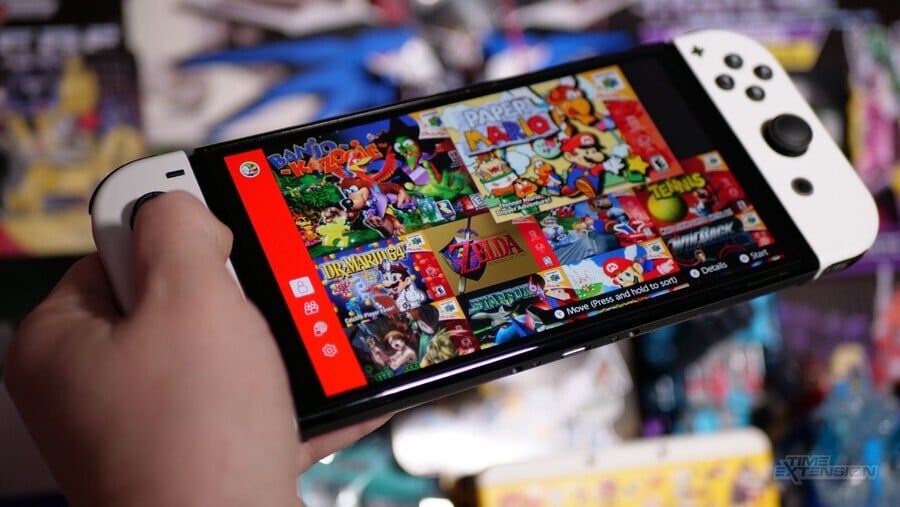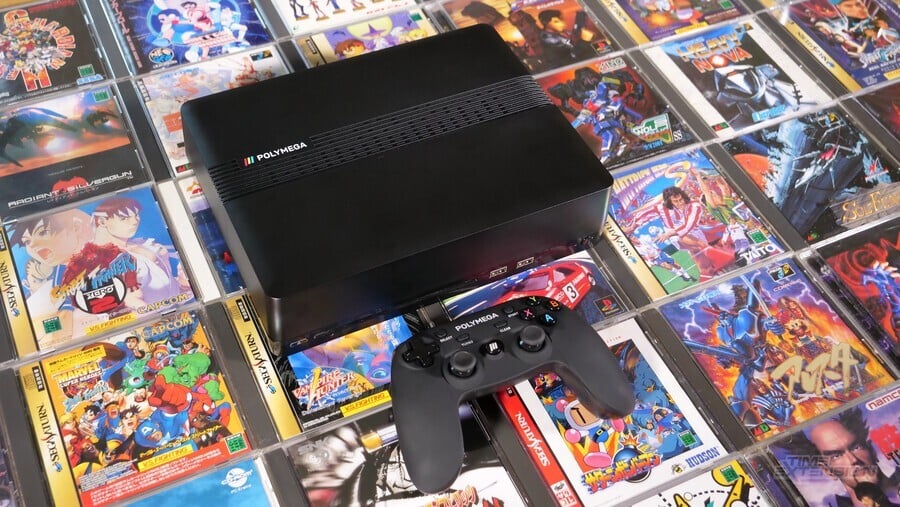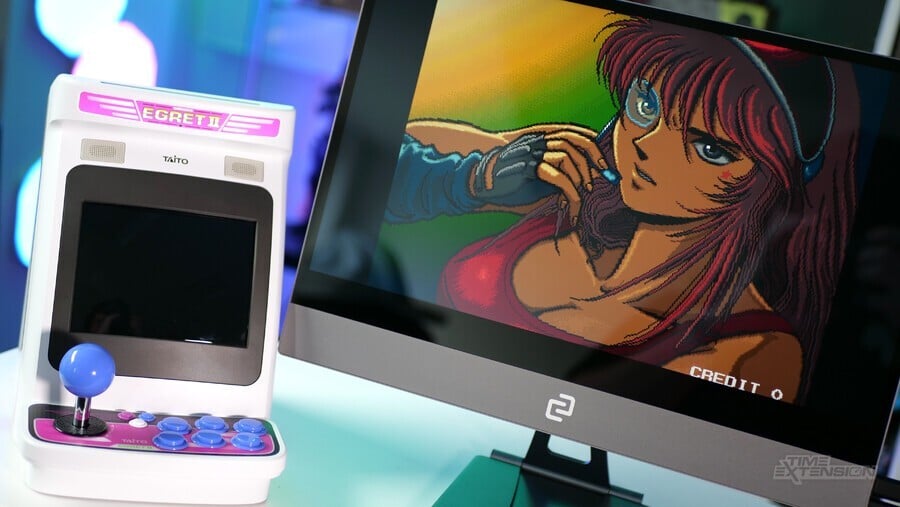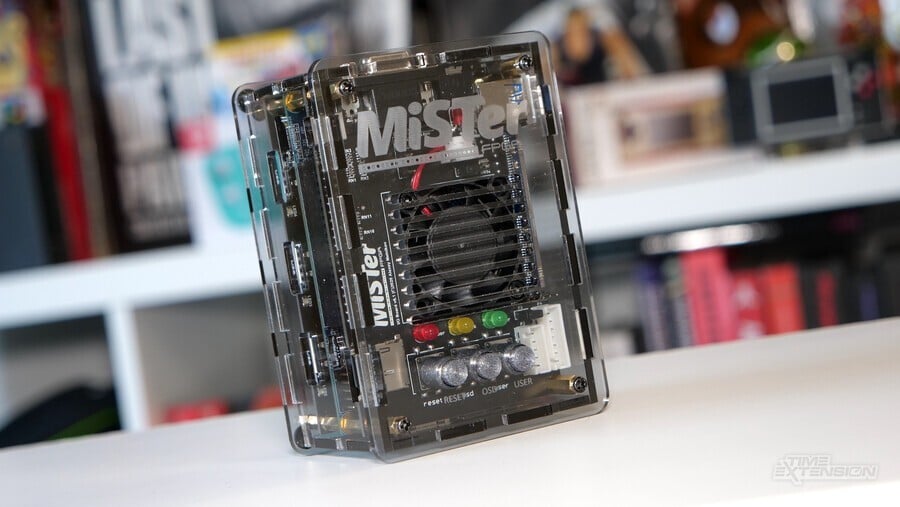
The recent release of GoldenEye 007 on Switch and Xbox shines a spotlight on the often complicated practice of playing vintage games in the modern era. For the longest time, it seemed as if the classic Rare FPS – first released on the Nintendo 64 back in 1997 – would never be available to play legally on any modern-day system. Not only were the rights to the game tied up in a licensing nightmare, but Rare is no longer a Nintendo-affiliated studio and is now wholly owned by Microsoft. Such was the complexity of the deal that Microsoft even killed an XBLA remaster over a decade ago. When you stop and think about it, it's actually a minor miracle that GoldenEye 007's 2023 re-released happened at all.
What makes this whole saga interesting is that it shows one of the key problems with trying to stick to "ethical emulation" – the process of playing old video games in a legal way. Before we charge into this topic, it's perhaps worth summing up what we mean by the term; ethical emulation, in our eyes, is when you play any classic video game on a modern-day platform without having to resort to software piracy. Given the nature of time, any old game you play in the modern era is almost certainly going to be emulated in software, making the process no different from running a ROM on your PC or handheld gaming device. The key point – and this is the "ethical" part – is that you've paid money to the original creator or current IP holder (via a purchase or subscription fee) and not simply downloaded the game from the internet.
Ethical emulation isn't a new thing; we had retro gaming collections as far back as the 16-bit era, and by the time the PlayStation and Saturn came around, companies like Namco, Sega and Capcom were keenly aware that there was a market for old games on modern systems, releasing the likes of the Namco Museum, Sega Ages and Capcom Generations collections – each containing multiple titles running via software emulation.

However, the rise of the internet and the increasing power of homebrew emulators has resulted in an explosion of "unethical emulation" – people downloading ROMs and ISOs online from often shady sites and playing them without paying a penny to the original copyright holder (we should point out, however, that emulators themselves are perfectly legal as long as they don't contain any copyrighted material, such as BIOS files).
Like any good debate, this isn't a question of things being right or wrong – and GoldenEye 007 is the perfect example of this. Prior to the re-release, the only way to play the game "legally" was via the original N64 version. That would mean sourcing a system (which comes with its own pitfalls), a copy of the game and then playing it on your modern flatscreen TV – or, if you're really lucky, on an authentic CRT or via your HDMI-modded N64 (and even then, it's important to point out that buying all of this gear second-hand doesn't benefit the original creator of the game). While many people have no issues jumping through these hoops (indeed, they find it to be part of the fun), for most people, it placed GoldenEye out of reach. Their only other option? Emulation.
GoldenEye isn't a unique case, either; think of all of the video games that have been released over the past 40 years which were either published by long-defunct companies or are tied up in licensing agreements which expired decades ago. These titles are effectively locked in time; they are unlikely to ever get an official re-release, so the only option is to emulate them using ROMs downloaded online. Strictly speaking, this process is breaking copyright law – and there are very real ramifications for that, at least in the case of people distributing said ROMs – but, without this route, these games would effectively be lost forever.
Video game preservation is a hot topic at present, and with good reason. In other entertainment industries, when there are instances of something not being available legally, the community finds a way. A live concert that never got an "official" release might get a bootleg album, for example. Why should video games be any different? A game that has long since gone out of print should be preserved for people to play, and at the present moment in time, that's being done (like it or not) via the many ad-filled ROM sites you'll find online. When the video game industry fails to comprehensively catalogue its past, fans inevitably fill the void.

However, what if you disagree with such practice, and want to adhere to the notion of ethical emulation? While there are many cases of games being "lost" due to the reasons we've mentioned, it's not like there aren't options available today. The most obvious of which is digitising your own personal collection of video games so you can play them via emulation. CDs and DVDs can be ripped using a computer, and so long as you don't distribute the files, you're on legally better ground than you would be if you downloaded the same data from the internet.
Cartridge-based systems are a harder nut to crack, but not impossible; devices like the Retrode 2 (which sadly is no longer in active production) and GB Operator offer the means of backing up your cart-based software so they can be used in emulators. Then, at one end of the scale, we have the pricey but promising Polymega, which is a rather more self-contained alternative. The system itself contains all of the emulators required to run the games, and you simply have to insert the original media (either via the CD drive or using one of the many optional 'Element Modules' to install the game to the Polymega's internal memory, where it is matched with a database entry, giving the whole process a very polished feel. However, installed games cannot be transferred to your PC or used with other systems, such as the Analogue Pocket – they remain locked on the Polymega.
With Polymega, the need to own the original game is paramount (although we should note, CD-R copies also work for CD-based systems it supports). While it's important to point out that buying a second-hand copy of Panzer Dragoon Saga from eBay doesn't put money in the pocket of the original IP holder, it does at least mean you're avoiding the issue of software piracy (at an eye-watering cost). For that reason alone, Polymega is likely to be of interest to those who want to emulate ethically (assuming they can actually get their hands on one, of course). It's also interesting to acknowledge that there's an N64 module on the way, so the console would have been an excellent option for playing GoldenEye 007, had the re-release not taken place.
Another way to emulate ethically is one we've already touched upon – the purchase of one of the many excellent collections and anthologies which exist on modern systems. Street Fighter, Aleste, Wonder Boy, Mega Man and Teenage Mutant Ninja Turtles have all received excellent packages in recent memory, while individual systems and companies have also been honoured with their own special collections – Digital Eclipses' recent Atari 50: The Anniversary Collection is the gold standard of how to do this kind of thing, and Sega has revived its Mega Drive / Genesis library with more than one pack. We've also seen individual games get released, too; the ongoing Arcade Archives series offers classic titles at bite-sized price points, giving players the chance to experience some amazing games – some of which have never been previously available outside of their original arcade release. And we don't know where we'd be without Sega's amazing 'Ages' line, which gave us a better-than-arcade-perfect version of the arcade title Virtua Racing. Oh, and let's not forget the fact that companies like Retro-Bit and Colombus Circle are giving older games physical re-releases in the modern era – making titles like Gaiares and Gleylancer legally available at reasonable prices.
We also have the excellent Evercade series of systems, which are backed up by a range of curated cartridge collections offering legal access to some of the most famous franchises of the past few decades. Since its launch in 2018, Evercade has become home to classics from Namco, Irem, Codemasters, The Bitmap Brothers, Toaplan, Activision, Intellivision, Atari and Jaleco, to name but a few. These carts offer access to games which have been out of active circulation for decades, which is a cause for true celebration and a boon for those who wish to make sure the creators or IP owners benefit in some way. For those companies, Evercade is a way of monetizing assets which would otherwise generate little revenue – which, in turn, opens the door for future ventures, ultimately benefitting the industry as a whole.
Add to this the proliferation of 'micro-console' releases – which includes the NES, SNES, Mega Drive, PC Engine, Neo Geo, Taito Egret II, Sega Astro City and PlayStation – and it soon becomes clear that retro gamers have really never had it better when it comes to gaining legitimate access to vintage games. The companies behind these projects obviously can't grant offer the entire back catalogue of these systems – nobody can, at least not legally – but the effort is clearly being made to satisfy the appetite of players who want to delve into history and rediscover the games they loved as a kid. And then there are subscription services like Nintendo Switch Online, AntStream and PlayStation Plus Premium, which are gradually offering up a wide range of old-school classics (often as a bonus) for a regular monthly fee.

As we mentioned already, there will always be times when ethical emulation can't scratch your itch. There are numerous arcade titles that remain locked in the past, only accessible today via the tireless efforts of the MAME community. These are games that, outside of their original coin-op release, have never been made available by any other distribution method – so, even if you want to be as legitimate as possible, there's no way to experience such games, outside of tracking down the original PCB. As is the case with domestic games that have since fallen out of print due to licensing troubles, there's a solid justification for getting your hands dirty and downloading a ROM online.
The truth is, even those with the best intentions will find it hard to remain 100% "ethical" when it comes to emulation. There's certainly a wide range of options on the market today – we've literally never had it better when it comes to legally playing classic games – but it's still impossible to cover all of gaming's history this way; heading off the beaten path requires you to resort to what is, like it or not, software piracy. Is this any different from the movie, book or music industries? Not really; movies, books and albums also fall out of circulation – and obtaining them without paying is still copyright theft. Video gaming isn't unique in this regard, but the fact that so many games are so tied up in licensing deals and console technology that becomes obsolete every decade or so makes preservation and access trickier than they should be.
More likely than not, many people will sit on the fence about this issue. If you're anything like us, you'll be hoovering up every micro-console that hits the market, as well as buying collections and digital downloads on an almost weekly basis – but you'll also find there are cases where you need to download ROMs from the internet (if you own a MiSTer or an Anbernic handheld, for example). It's often hard to take a hardline stance on this kind of thing, especially when there are so many blind spots that legitimate releases don't cover – and probably won't ever cover. But, if people resort to sourcing a game online without paying for it, what incentive is there for publishers to make that game available legitimately?
We could be here all week talking about this, but our time is sadly at an end...
Do you think "ethical emulation" is something we need to support, or are you of the opinion that downloading old games online isn't a problem? Perhaps, like us, you sit somewhere in the middle and do both things? We'd like to hear your thoughts on this matter. Vote in the poll below, and please let us know your perspective on this topic by leaving a comment.




